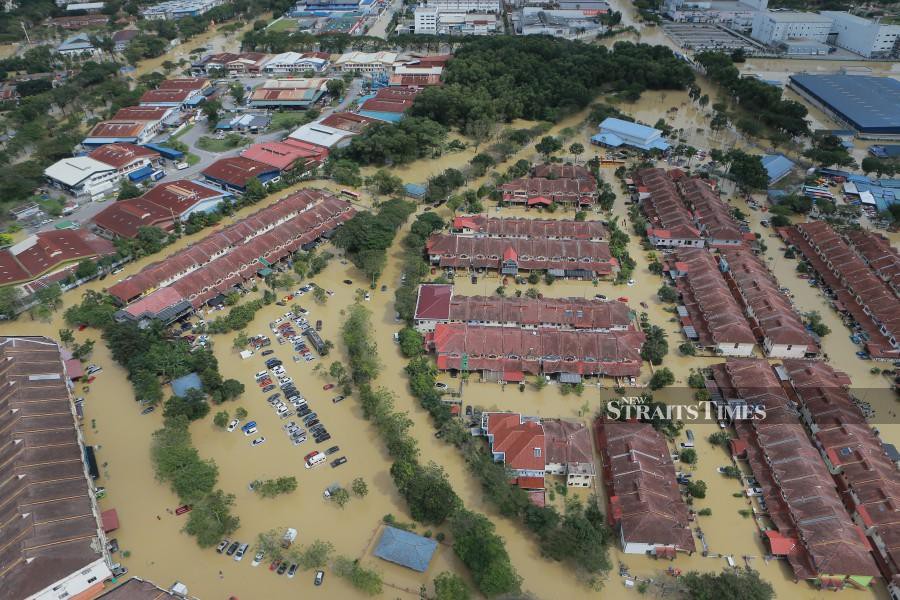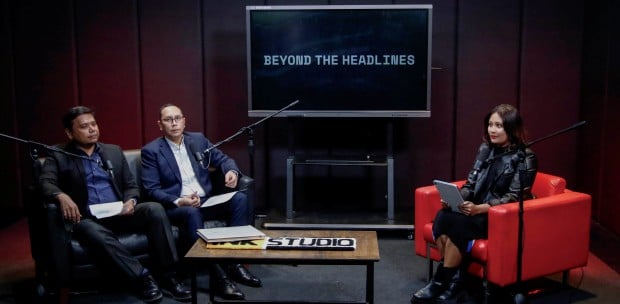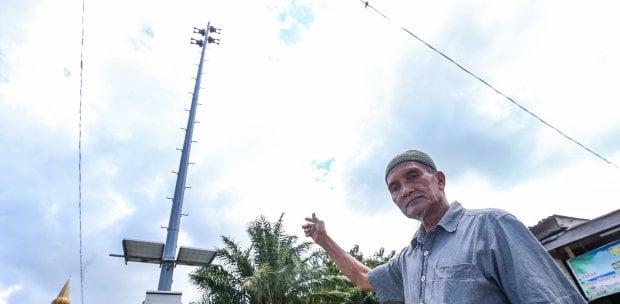Dr Furqan Ishak Aksa from Samudra University, Aceh, Indonesia, gives an interesting outlook through a paper titled "Islamic Perspectives on Disaster: Alternatives to Changing Fatalistic Attitudes".
In general, he attempts to show that misunderstandings of Islamic teachings are the root cause of Muslims' fatalistic attitude towards disaster.
This relates to the belief that every incident that happens in life is beyond human control. The motive is to teach society to accept disaster and its impacts as destiny.
This belief is not entirely wrong but it seems to indicate that Islam is a passive religion. On the contrary, a lot of Islamic guidelines and values are proactive.
In other words, Islamic teaching encourages Muslims to make every effort to change their fate instead of just accepting their destiny.
Furqan focuses on three important concepts to deal with a fatalistic attitude: al-Ilmu (knowledge), ikhtiar (efforts) and tawakal (trust in Allah SWT).
These three are also important in dealing with disaster recovery efforts. This article therefore discusses the three concepts in the context of disaster recovery.
In disaster risk reduction management, knowledge is important.
Seeking knowledge is indeed an obligation for every Muslim (Ibn Majah) because knowledge brings Muslims closer to Allah SWT.
And with knowledge, we are able to understand different facets of a disaster, such as the cause, disaster preparedness, actions that need to be taken when a disaster occurs and different ways to overcome it.
Therefore, public disaster education is vital, formally or informally. The focus should be experience-based disaster education.
Specifically, experience-based disaster education offers a hands-on and interesting learning experience.
Perhaps Japan's experience in public disaster education could be used as a guide. In Tokyo, there are three disaster education centres in Ikebukuro, Honjo and Tachikawa. The same facilities are available in Kyoto.
The purpose of the centres is to educate and provide information and opportunities for visitors to learn about disasters and get hands-on experience on different disasters.
The centre also offers disaster management training to the public and students in schools and universities.
The local government and rescue agencies also offer and conduct disaster training with the community.
Second, ikhtiar is another Islamic value that supports disaster recovery efforts. Ikhtiar encourages us to strive for recovery when a disaster strikes and be prepared to deal with future disasters.
Surah Hud, verses 25-49, tells about Prophet Nuh's preparation before a disaster (flood) occurs as an attempt to reduce the impact of a disaster.
Similarly, the story of Prophet Yusuf and his preparation for the drought mentioned in surah Yusuf, verses 46-49, is seen as an effort to deal with prolonged droughts.
Then, tawakal (trust in God) involves our complete surrender to Allah SWT after every hard work.
This value includes two important aspects: reliance on Allah SWT and amal (people's effort to achieve their desires or need).
Reliance involves complete submission of our destiny to Allah SWT and amal involves human's earnest effort to achieve something.
Tawakal is different from surrender because by surrendering, a person lets his fate be determined by destiny without any specific effort.
According to Dr Maila Dinia Husni Rahiem from Universiti Islam Negeri Syarif Hidayatullah Jakarta in a paper, "Religious Interpretations and Psychological Recovery from the 2004 Aceh Tsunami: The Promise of Heaven, Healing the Trauma," the concept of tawakal is derived from the Quran and has a positive impact on recovery from psychological trauma from disaster.
Tawakal is one's full submission to Allah SWT, followed by efforts to help victims recover from the effects of disaster.
Although the recovery period varies from one victim to another, tawakal helps to strengthen people's souls in disasters.
The government has set up systems and facilities to assist in disaster risk reduction efforts and reduce the impacts of disaster events.
But all systems and facilities will not succeed without non-material support, such as psychological support, stakeholder cooperation and disaster education.
Thus, disaster risk reduction efforts are holistic and part of them involves the understanding and practising of religious values and guidance. Religious belief is a source of strength for victims after any disaster.
The writer is a fellow at the Centre for Science and Environment Studies, Institute of Islamic Understanding Malaysia
The views expressed in this article are the author's own and do not necessarily reflect those of the New Straits Times






